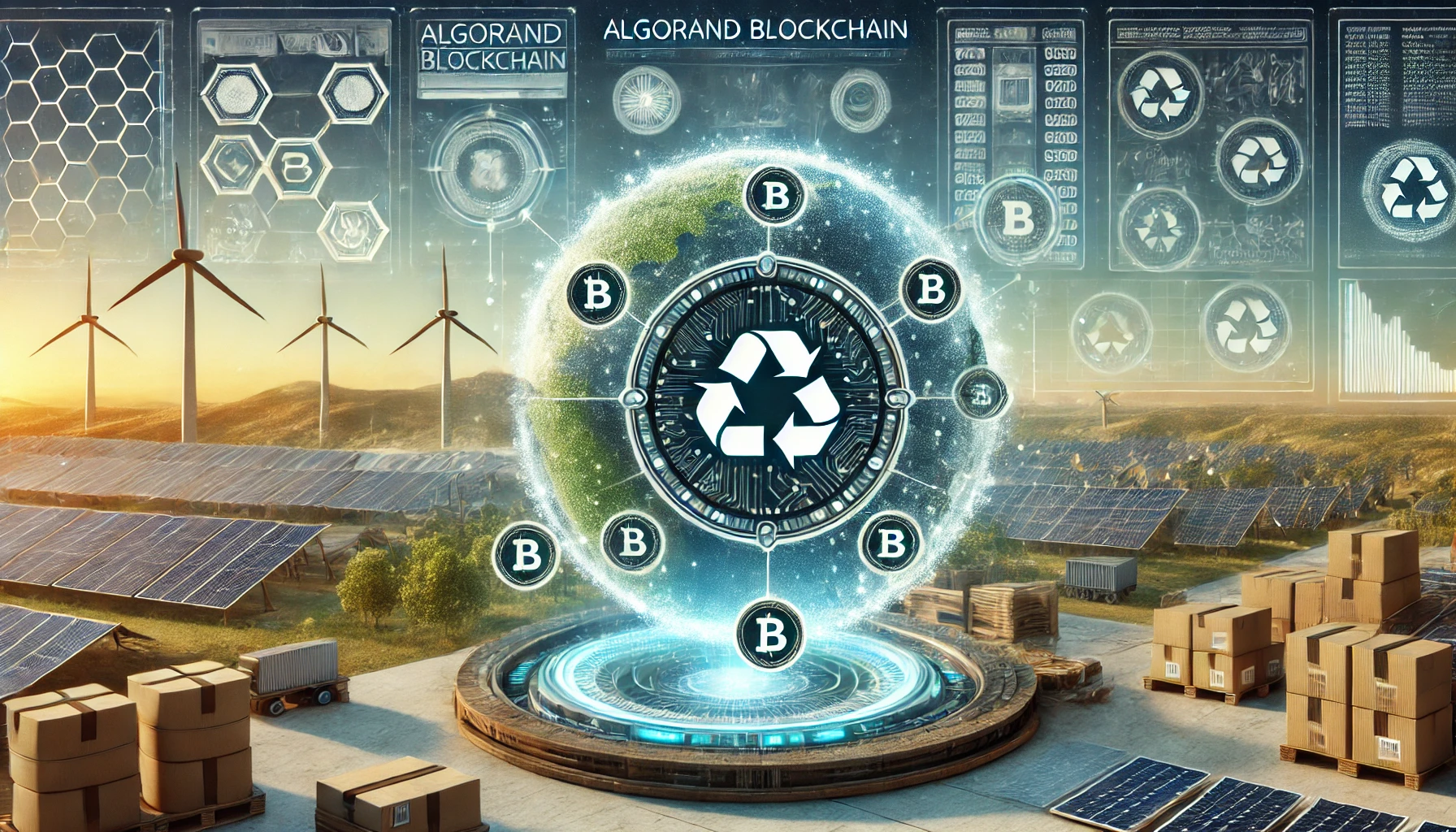The global economy has long relied on a linear model of production and consumption, where goods are manufactured, used, and eventually discarded. This approach results in significant waste and environmental harm. The circular economy offers a sustainable alternative by promoting the reuse, refurbishment, and recycling of products. However, implementing such a system on a large scale requires transparency, trust, and efficiency in tracking second-life components.
The CircleChain project introduces a blockchain-based solution to address these challenges. By leveraging Algorand’s secure and efficient blockchain technology, CircleChain enables the authentication, circulation, and reuse of products in a trustless environment. Its role-based token management system ensures that every component can be tracked transparently throughout its lifecycle.
The Need for Transparency in the Circular Economy
One of the primary challenges of a circular economy is the ability to verify the history, authenticity, and condition of reused products. Without a reliable system, businesses and consumers face difficulties in determining whether second-life components meet quality standards. This lack of transparency can discourage participation in sustainable practices and limit the growth of circular markets.
Blockchain technology provides an immutable and decentralized record of transactions, making it an ideal solution for managing second-life components. CircleChain utilizes this capability to enhance trust and efficiency in the circular economy. By creating digital tokens that represent physical products, CircleChain ensures that each item can be traced from its original use to its subsequent owners and applications.
How CircleChain Works
CircleChain operates on the Algorand blockchain and employs a role-based token management scheme to facilitate product tracking. The key features of this system include:
- Tokenized Products: Each second-life component is assigned a unique digital token, storing essential data such as origin, ownership history, and condition. This allows stakeholders to verify product information in real time.
- Smart Contract Automation: Transactions related to the transfer, validation, and reuse of products are executed through smart contracts, ensuring that predefined conditions are met without the need for intermediaries.
- Decentralized Verification: The blockchain ledger provides a secure and transparent record of product history, reducing the risk of fraud and enhancing accountability.
- Role-Based Access: Different stakeholders, including manufacturers, recyclers, and consumers, have access to relevant data based on their role in the system. This ensures privacy while maintaining transparency where necessary.
By implementing these mechanisms, CircleChain enables seamless and trustworthy interactions between participants in the circular economy.
Why Algorand
CircleChain is built on the Algorand blockchain due to its speed, security, and low transaction costs. Algorand’s proof-of-stake consensus mechanism ensures that transactions are processed quickly and efficiently, making it well-suited for high-volume applications. Additionally, Algorand’s commitment to sustainability aligns with the goals of the circular economy, as its blockchain operates with minimal energy consumption compared to traditional proof-of-work systems.
Applications of CircleChain
CircleChain’s blockchain-based solution has wide-ranging applications across multiple industries.
Electronics Recycling: E-waste is a growing problem, with millions of discarded electronic devices polluting the environment. CircleChain allows manufacturers and consumers to track refurbished components, ensuring their quality and compliance with industry standards.
Automotive Industry: The resale of used car parts requires verification of their condition and origin. CircleChain provides a secure system for tracking automotive components, reducing fraud and improving market efficiency.
Sustainable Fashion: The fashion industry generates significant waste through fast fashion practices. With CircleChain, brands can verify the authenticity of sustainable clothing and track the lifecycle of garments, promoting responsible consumption.
Medical Equipment: Second-life medical devices must meet strict regulatory requirements. CircleChain facilitates compliance by maintaining a transparent record of ownership and maintenance history.
The Impact of CircleChain
CircleChain enhances the circular economy by providing a reliable and efficient framework for managing second-life products. By improving transparency and trust, it encourages businesses and consumers to participate in sustainable practices. This initiative has the potential to reduce waste, lower costs, and create new economic opportunities in the growing market for refurbished and recycled goods.
As industries move toward more sustainable models, blockchain technology will play a crucial role in enabling a transparent and efficient circular economy. CircleChain is at the forefront of this transformation, demonstrating how digital innovation can drive real-world sustainability.




